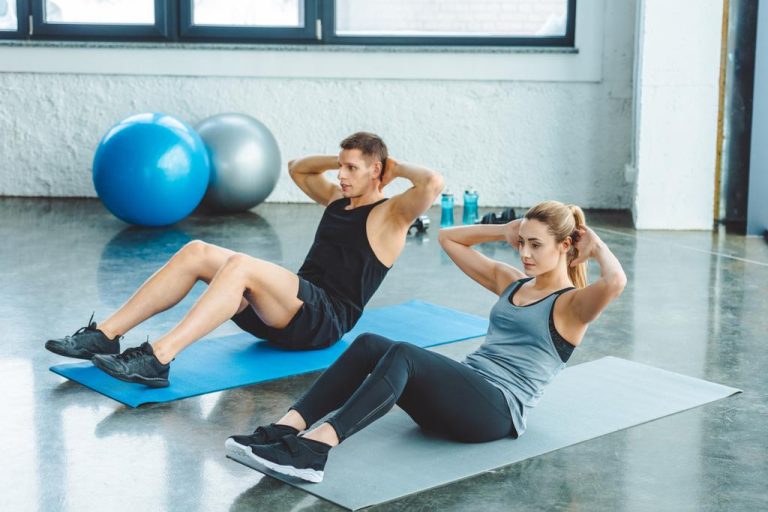Bike to work, count steps and try to jog as often as you can. The goal: to lose weight. But the personal compulsion to constantly burn calories affects mental health. Apart from weight loss, sport has so many other positive effects.
Weight reduction in sports: That’s why it shouldn’t be the goal
Anyone who constantly puts themselves under pressure when losing weight or associates weight reduction with negative thought patterns such as “I’ll never make it” or “It’s all taking too long” can trigger certain stress reactions that are particularly counterproductive for weight loss success. This is partly due to the stress hormone cortisol, which inhibits fat loss and muscle growth, according to personal trainer Sandra Mennel
Another reason not to just focus on losing weight while exercising is weight gain from muscle building. Anyone who does a lot of sport inevitably builds muscle. Without a doubt, a defined body looks better and slimmer. But many people quickly panic and lose motivation when they see the scale saying anything other than the weight loss they want. However, it is often forgotten that muscle is heavier than fat tissue, which is why the scale shows more than hoped for.
The increase due to water retention corresponds to another problem for beginners. If you haven’t exercised properly for years, your muscles will become sore very quickly. This can even affect weight, since the body stores more water when muscles are sore. It is precisely this water retention that leads to the fact that one or two kilograms more can be welcomed on the scales.
Good arguments for sport that have nothing to do with losing weight
Much more than losing weight, the positive aspects should come to the fore in sport. In most cases, we just feel mentally better after a sports session. This is because physical activity releases endorphins, which in turn have a relaxing effect on both the body and mind. That’s why you can not only switch off with a sports unit, but also reduce stress. But only if you don’t stress about losing weight.
Furthermore, studies such as the joint study by Oregon State University and Bellarmine University have shown that regular exercise significantly improves the quality of sleep. During the study period, 3081 adults between the ages of 18 and 85 were interviewed. Those who exercised at least two and a half hours a week were able to increase the number of light and deep sleep phases.
Finally, regular exercise leads to a generally improved state of health. In various studies, scientists have found that regular exercise helps to minimize the risk of type 2 diabetes, cardiovascular disease and even some types of cancer. In addition, the professor of sports science, Dr. Henning Budde, in a “mega-analysis”, that sport has positive effects on depression and even works as well as drug therapies.
Conclusion: With serenity you can lose weight better
If you really want to lose weight, you should approach the topic calmly and not toil in the gym. Sports beginners in particular should not be unsettled by the imbalance on the scales. Those who are prone to chronic stress can specifically include relaxation phases in their sports units. Nevertheless, you should always expect small setbacks, because failures are completely normal when losing weight and are part of it.






